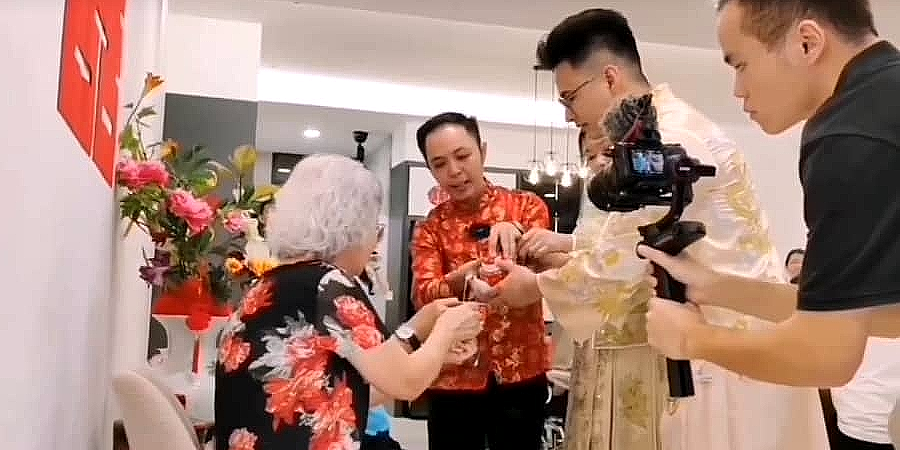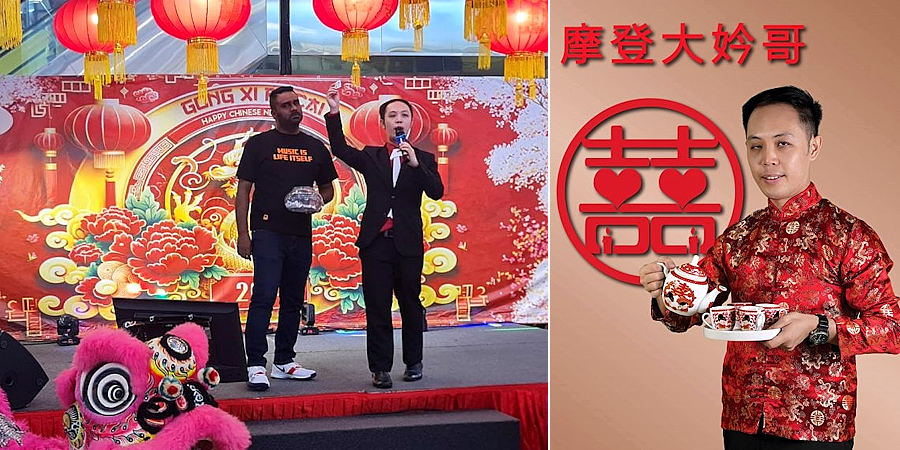
SEREMBAN: A wedding chaperone in Chinese wedding is no longer confined to women nowadays.
Known to be a mood-setter for the happy occasion, and well-versed with the wedding rituals taking charge of the wedding ceremony with a long list of cheerful and auspicious words, traditionally a wedding chaperone used to be a female, referred to as dai kam jie in Cantonese.
Kui Jun Ning, also known as Emcee Kui, is one such man who takes up this task as a part-time job.
Kui started as a host after joining a public speaking training class organised by the Negeri Sembilan Chinese Assembly Hall where he came to know some of the people in clan associations.
At the same time, a fortune-teller also told Kui, 37, an account executive in a factory, that an “outdoor” job would be more suitable for him.
“I started going through jobs like insurance agent, salesman and others but I don’t think I am suited for these jobs.
A host perhaps is also an “outdoor” job mentioned by the fortune-teller, according to Kui.
As he started to take on more jobs as hosts, the offer to be a wedding chaperone came along too.
Kui also took up a course on wedding chaperone when he spotted one on social media.
From an introverted, quiet man, Kui has been transformed into an eloquent chaperone as more jobs provided him the exposure.
“I never thought that I could be the person spreading joy in an event,” he said.
Citing an example, a woman relative wanted to delay the tea ceremony for her to apply make-up before her turn during the ceremony.
When it was her turn, Kui took the opportunity to say that applying SK II was no longer necessary after drinking the tea served by the new couple.
The groom also joined Kui by saying make-up was not needed, which brought laughter to those present at the ceremony. (In Mandarin and Cantonese, the pronunciation for “applying” and “tea” is the same).
A chaperone is also the medium to bridge the gap between the seniors and the bride and groom so that the wedding ceremony can run smoothly without a hitch, said Kui.
Kui would be the person to guide the newly-wed to complete the wedding rituals, tea ceremony, events running up to the big day, the dos and don’ts to look out for.
“While young people prefer a simple tea ceremony, the older generation want to make sure the protocol is followed,” he said.
Kui needs to be well-versed with different practices in Chinese weddings to guide the new couple and meet the expectations of the seniors at the same time, so that everyone present is happy.
As he is getting more requests as chaperone, Kui does not rule out that this will become his full-time job one day.

ADVERTISEMENT
ADVERTISEMENT


































